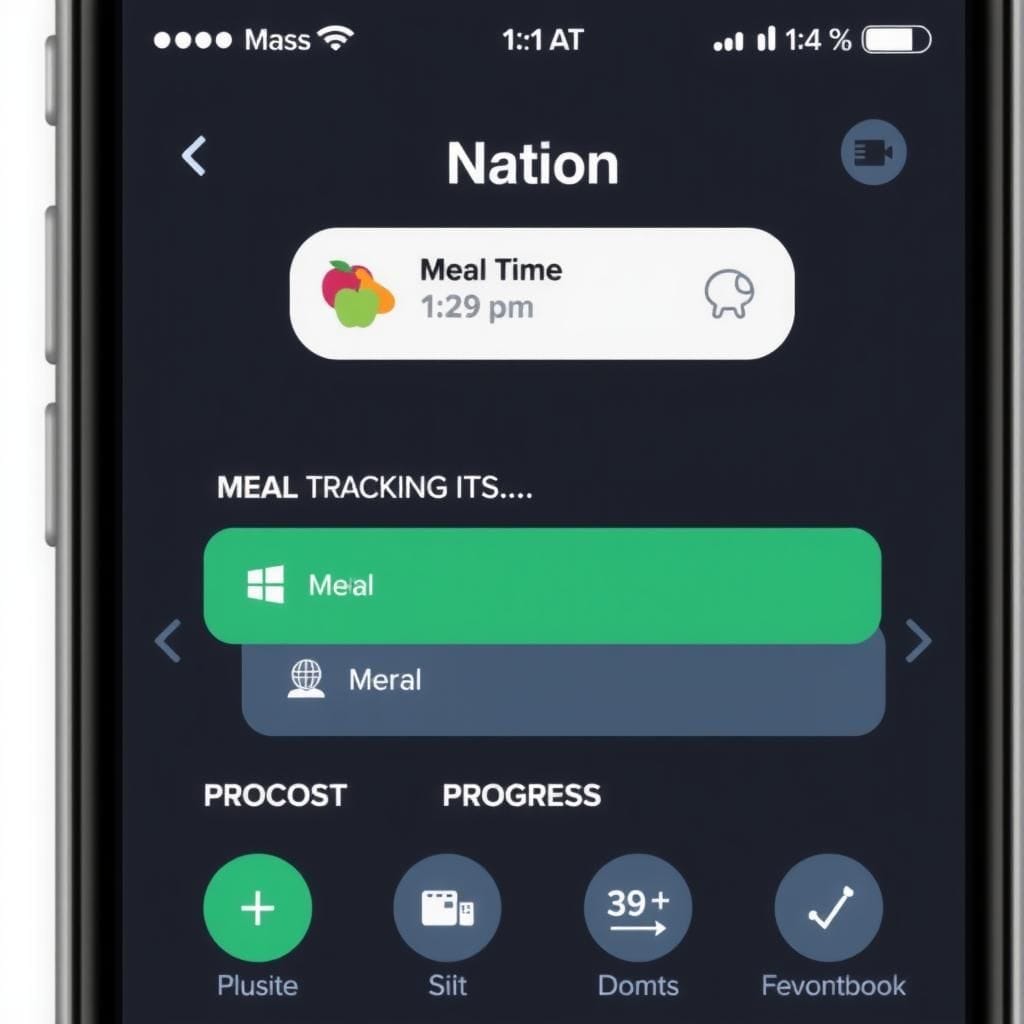
In the modern era, applications have become essential tools for managing various aspects of life, including those designed to assist with weight management. Among these, Noom has gained popularity since its inception in 2013. This program aims to cultivate sustainable dietary habits and promote long-term weight reduction by emphasizing nutritional choices and the psychological factors influencing eating patterns.
Below is a comprehensive analysis of Noom—how it functions, its potential health benefits, and its effectiveness in weight control—to help determine whether it is a suitable option.
What is the Noom?
Noom presents multiple advantageous features. Beyond merely offering dietary plans, the platform enables users to:
- Monitor daily meals
- Access structured workout regimens
- Track physical activity and progress
- Assess personal motivation levels
- Read educational articles
- Explore varied recipes
- Set personalized goals
- Receive guidance from a health coach—though these professionals are not necessarily certified dietitian nutritionists
- Engage with a community of individuals pursuing similar health objectives
Additionally, Noom incorporates elements addressing emotional eating, examining how stress and boredom contribute to excessive food consumption. Research indicates that boredom may lead to overeating behaviors.

What Foods Are Allowed in the Noom Diet?

The fundamental aim of Noom is to establish healthy eating patterns that are sustainable over time.
A notable advantage of this program is that it does not impose absolute restrictions on any food category. Instead, it promotes the consumption of nutrient-rich foods, designated as green-labeled items within the application. Examples include fresh fruits and vegetables, which are deemed highly beneficial.
Conversely, Noom advises limiting portions or reducing the frequency of consuming yellow-labeled foods (such as proteins and starches) and orange-labeled foods (such as fried items, pizza, confectionery, and alcoholic beverages).
Fundamentally, Noom distinguishes itself from conventional weight loss strategies by focusing on behavioral modification rather than short-term solutions that often result in temporary success.
However, the method of categorizing food items differs slightly from the 2020-2025 U.S. Dietary Guidelines. While fresh produce and whole grains are classified as green, lean proteins and low-fat dairy products—which offer significant health benefits—are categorized as yellow within the app. Additionally, healthy fats such as olive oil, nuts, and nut-based spreads are assigned an orange label, despite their recognized nutritional value.
Cost Considerations
Another aspect to consider is that Noom requires a financial investment. Although the application is available for free download and includes a brief trial period, as of 2025, a full subscription costs approximately $70 per month, with a recommended duration of 16 weeks (or four months). Furthermore, Noom provides additional premium services for an extra fee, including customized fitness and dietary plans.
- Noom Weight (Weight Loss Program):
- Monthly: $70
- 2-month: $129
- 3-month: $159
- 4-month: $169
- 5-month: $174
- 6-month: $179
- 7-month: $184
- 8-month: $189
- 9-month: $195
- 10-month: $199
- 11-month: $205
- Annual: $209

Advantages of the Noom Diet Application

A notable aspect of Noom is the continuous support it provides to its users. In many conventional settings, individuals might only interact with a certified dietitian nutritionist or health coach on a weekly or biweekly basis. Given that a person consumes approximately 21 to 35 meals and snacks between such consultations, waiting for the next session can prove challenging. Conversely, studies indicate that integrating an application-based approach with consistent guidance and feedback may facilitate more substantial weight reduction for participants.
Another crucial feature of Noom is its consideration of social eating scenarios, allowing individuals to plan for events such as parties, holidays, or vacations. This enables users to implement behavioral modifications that contribute to long-term weight stability.
Rather than adopting a rapid weight loss strategy or making extreme dietary alterations, Noom encourages gradual and sustainable changes in eating habits—a method widely recognized as effective for maintaining a healthy weight over an extended period.
While Noom is not inexpensive, its cost is generally lower than the expense of one-on-one consultations with a registered dietitian nutritionist, unless an individual’s health insurance plan fully covers nutrition-related services.
Evaluating the Noom Diet: Reviews and Outcomes
Regarding effectiveness, a 2016 review published in Scientific Reports concluded that nearly 80% of users experienced successful weight loss while utilizing the Noom application. The study also observed that individuals who frequently recorded their food intake and weight demonstrated greater weight loss compared to those who tracked less consistently.
Noom’s internal data suggests that 64% of users who completed the program—defined as engaging in at least nine lessons per week during core weeks—achieved a weight reduction exceeding 5% of their body weight within 24 weeks.
Potential Drawbacks of Noom
Despite its advantages, certain challenges are associated with Noom. One primary concern is that the mandatory tracking of dietary intake can be time-intensive, tedious, or even stress-inducing for some users. Additionally, individuals seeking to reduce screen time may find the app an unsuitable choice for managing weight.
Furthermore, those with specific dietary requirements might benefit more from direct consultations with a specialized nutrition expert rather than relying on Noom. Registered dietitian nutritionists possess expertise in addressing food sensitivities, allergies, and chronic conditions such as irritable bowel syndrome (IBS). They are also extensively trained in both clinical nutrition and weight management.
On the App Store, Noom maintains an average rating of 4.7 out of 5 stars, based on an analysis of over 730,000 user reviews. However, feedback is mixed.
Some users express high satisfaction with the app, while others report difficulties with cancellation procedures. Certain users feel that the content and coaching services do not align with their expectations.
For instance, some reviewers noted that coaching responses appeared automated, while others expressed concerns about the limited accessibility of coaching professionals. Another frequent criticism pertains to the restricted selection of foods available in the tracking database.
Before committing to Noom, prospective users should take the time to review feedback from existing users. While Noom offers guidance, it remains the individual’s responsibility to make dietary and fitness-related choices. Thus, the app can be likened to purchasing a treadmill—a tool that can be highly effective, yet, without consistent engagement, may end up serving as an unused item in the home.
Ultimately, motivation and active participation are essential for achieving desired results. The rate and extent of weight loss depend primarily on the user’s efforts, as an application merely functions as an instrument for support.
Final Considerations
Noom is among several applications designed to facilitate weight management. The overarching goal is to achieve weight loss through nutritionally balanced and gradual lifestyle modifications, ensuring long-term sustainability.
When selecting a weight loss strategy, it is crucial to identify which tools and methods best support personal motivation and adherence. Additionally, consulting a healthcare professional before commencing any weight management program is essential to ensure safety and effectiveness.
What is the Noom diet?
The Noom diet is a weight management program designed to promote sustainable lifestyle changes rather than temporary fixes. It utilizes a behavioral psychology approach to help users develop healthy eating habits and maintain their weight loss long-term. The program offers features such as meal tracking, exercise logging, personalized coaching, and access to a supportive community.
What are the negatives about the Noom diet?
While Noom has several advantages, it also presents certain challenges. The meal tracking requirement can be time-consuming and stressful for some users. Additionally, the app might not be ideal for those looking to reduce screen time. Some users have also reported difficulty canceling subscriptions and inconsistent coaching quality. Moreover, the limited food database may not cater to all dietary needs.
What are the Noom rules?
Noom does not impose strict dietary restrictions. Instead, it encourages portion control and mindful eating. The app categorizes foods into green, yellow, and orange groups, promoting the consumption of nutrient-dense foods while limiting calorie-dense options. Noom also emphasizes consistent self-monitoring, goal setting, and behavioral modifications to support weight management.
What are the 3 Noom food categories?
Noom categorizes foods into three groups:
Green foods – Nutrient-rich items like fruits, vegetables, and whole grains.
Yellow foods – Moderate-calorie foods like lean proteins and low-fat dairy products.
Orange foods – Calorie-dense options such as fried foods, candy, pizza, and alcohol
